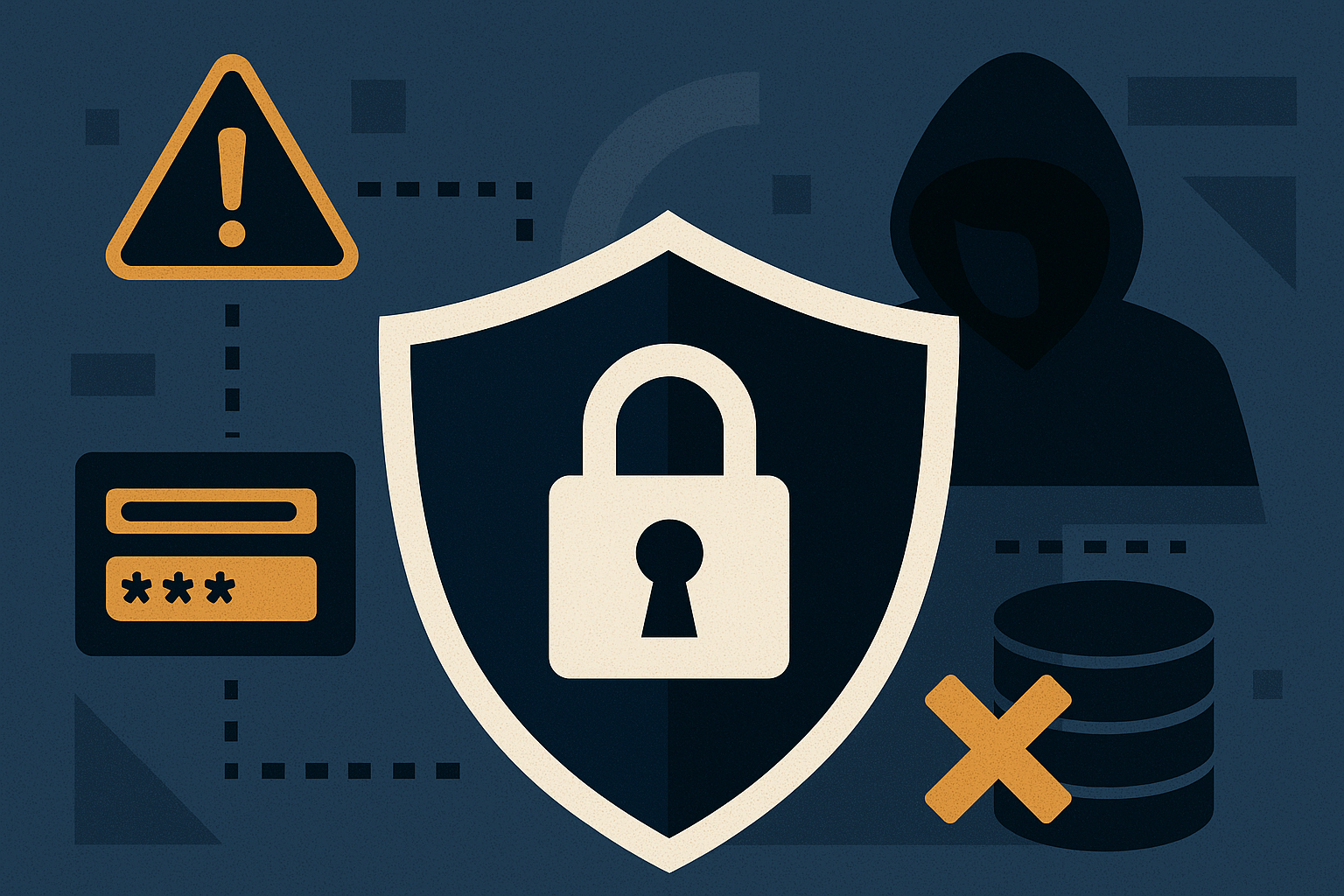
Egress Security Policies: 7 Reasons They Matter More Than You Think
Egress Traffic is a Critical Security Concern for API Integrations. Learn how unmonitored egress traffic can lead to data leaks and security risks, and discover best practices for safeguarding your network in today’s API-driven world.
In recent years, the reliance on APIs has skyrocketed as companies increasingly integrate third-party services to enhance their products and operations. This trend is fueled by the booming API economy, where everything from payment processing to AI-driven analytics is accessible via API integrations. The widespread adoption of AI APIs, in particular, has become a game-changer, enabling businesses to incorporate advanced functionalities such as natural language processing, image recognition, and predictive analytics into their workflows with ease.
As organizations embrace these opportunities, they inevitably increase their consumption of external APIs. However, with this surge in API usage comes a significant challenge: the need to manage and secure the outgoing traffic, known as egress traffic, that results from these integrations.
Egress traffic refers to data that exits an organization's network, typically destined for external services or third-party APIs. With the growing dependency on external APIs, this outbound data flow has expanded, creating new security concerns. Unmonitored egress traffic can become a vulnerability, exposing organizations to risks like data leaks, unauthorized access, and the potential exploitation of insecure or compromised third-party APIs.
The proliferation of API integrations, particularly in production environments, underscores the critical need for robust governance and visibility over egress traffic. Without proper oversight, organizations are left with a significant blind spot in their security posture, making them more susceptible to threats in an increasingly interconnected digital landscape.
The Security Implications: Addressing Unsafe API Consumption
As the use of external APIs expands, so do the security risks associated with unmanaged egress traffic. These risks have gained widespread recognition, particularly with the inclusion of "Unsafe Consumption of APIs" in the OWASP API Security Top 10. This recognition underscores the growing awareness of the dangers posed by unchecked API consumption.
According to the OWASP API Security Project, unsafe API consumption occurs when organizations fail to properly vet, monitor, or secure their interactions with external APIs. This oversight can lead to several vulnerabilities, including exposure to insecure APIs, data leaks, and the potential for third-party APIs to act as a gateway for attackers to infiltrate the organization’s systems.
The OWASP report highlights that, as organizations continue to expand their use of third-party APIs, the risks associated with egress traffic are only set to increase. It emphasizes the importance of implementing comprehensive security measures to mitigate these risks, such as validating API responses, enforcing strict data handling policies, and continuously monitoring egress traffic for anomalies.
The need for security in egress traffic is not just about protecting data; it's about ensuring the integrity and reliability of the entire API ecosystem. By addressing unsafe API consumption, organizations can safeguard their operations, protect sensitive information, and build trust with their customers and partners.
1. Preventing Abuse Over Your API Integrations
One of the most compelling reasons to implement a robust egress security strategy is the need to prevent abuse over your consumption of API integrations. As organizations increasingly rely on third-party APIs, they inadvertently open themselves up to the risk of API key abuse, where unauthorized users or malicious actors exploit these APIs for unauthorized purposes.
For instance, a common form of abuse is the unauthorized use of API keys, which can result in unexpected and significant costs as bad actors make excessive API calls on your behalf. This type of abuse was highlighted in a case where an organization discovered unauthorized usage of their API keys, leading to substantial, unintended API consumption. The organization faced not only financial repercussions but also the potential for data leaks and security breaches. To protect against such scenarios, it’s essential to have an egress security strategy that includes monitoring and validating outbound API traffic to ensure that it is legitimate and authorized.
2. Mitigating DDoS Attacks and Overuse of API Integrations
Another critical aspect of egress security is protecting your systems from Distributed Denial-of-Service (DDoS) attacks that target API integrations. DDoS attacks can overwhelm your systems by sending a flood of requests, many of which may propagate through your network to external APIs. This not only disrupts your services but also strains your relationship with third-party API providers, as their systems are impacted by the overuse.
Bots and automated scripts used in DDoS attacks can also contribute to API overusage by generating an excessive number of API calls. These calls, often part of broader malicious scanning activities, can lead to performance degradation and increased costs. Implementing egress security measures, such as rate limiting and traffic filtering, is crucial to detect and block suspicious API calls before they cause harm. Insights on this can be found in Cloudflare's article on API abuse detection.
3. Preventing Specific API Usage Abuse: OpenAI Prompt Abuse
As AI APIs, like OpenAI, become more integrated into business processes, specific types of abuse, such as prompt abuse, have emerged. Prompt abuse occurs when users manipulate the input to AI models to extract unintended information or to exploit the system in ways that deviate from its intended use. This can lead to security vulnerabilities, such as leaking sensitive data or triggering unintended behaviors in the AI models.
To combat this, it’s vital to have an egress security strategy that includes mechanisms to filter and monitor AI API requests for signs of prompt abuse. By doing so, organizations can prevent misuse and maintain the integrity of their AI-powered services. An example of this can be seen in the OpenAI Prompt Abuse Filter.

The Need to Stay Compliant: Protecting PII in Egress Traffic
In addition to preventing abuse and mitigating attacks, an essential aspect of having an egress security strategy is ensuring compliance with regulations that govern the handling of Personally Identifiable Information (PII). With the increasing reliance on API integrations, organizations must be vigilant about the data they send over these channels, particularly when it comes to sensitive information. Compliance not only protects the organization from legal repercussions but also builds trust with customers and partners.
4. Obfuscating PII Data in API Payloads
One of the foundational strategies for maintaining compliance is obfuscating PII data that is transmitted through API calls. PII, such as social security numbers, credit card details, and personal addresses, is often included in the payload of API requests. Without proper controls, this data can be exposed to unauthorized parties, either through a breach or as part of a legitimate API call to an external service that lacks adequate security measures.
To mitigate this risk, organizations should implement both inspection mechanisms and rule sets that automatically detect and obfuscate or remove PII in API payloads before the data is transmitted. This could involve replacing sensitive information with tokens or hashes that retain the utility of the data while protecting its confidentiality. By applying these rules consistently across all outbound traffic, organizations can significantly reduce the likelihood of a data breach and stay compliant with regulations like GDPR, CCPA, and others.
5. Blocking API Calls to Prevent PII Leakage
In some cases, the most effective way to protect PII is to prevent certain API calls from being made altogether. This could be necessary when the destination API is not trusted, or when the payload contains highly sensitive information that should not be shared under any circumstances. An egress security strategy should include the ability to block API calls that do not meet predefined security and compliance criteria.
By incorporating a system that evaluates API requests against a set of security and compliance rules, organizations can dynamically block requests that pose a risk of PII leakage. This preventive measure is particularly important in environments where multiple teams or automated processes generate API calls, as it ensures that sensitive data is not inadvertently exposed.
4. Auditing API Calls for Compliance and Root Cause Analysis
Finally, auditing API calls is a crucial component of both maintaining compliance and conducting root cause analysis in the event of a security incident. An effective egress security strategy should include detailed logging and auditing capabilities that track every API call made from the organization’s systems. This includes capturing information about who initiated the API call, what data was sent, and where the call was directed.
Audit logs serve multiple purposes. From a compliance perspective, they provide a record that can be used to demonstrate adherence to data protection regulations. They also enable organizations to quickly identify and address any unauthorized or non-compliant API calls. Additionally, in the event of a security breach or data leak, audit logs are invaluable for conducting root cause analysis, helping to pinpoint the origin of the issue and prevent future occurrences.

Securing API Tokens: Protecting Against Unauthorized Access and Abuse
An often overlooked yet critical aspect of an egress security strategy is the secure storage and management of API tokens. API keys are the gateways to your organization’s API consumption, providing access to external services and data. If these keys fall into the wrong hands—whether through an insider threat or an external bad actor—the consequences can be severe, including unauthorized API usage, data breaches, and significant financial losses.
5. The Risks of Exposing API Keys
API tokens are highly sensitive credentials that, if exposed, can be exploited by malicious entities. A compromised API key can allow an attacker to consume APIs on behalf of your organization, leading to unauthorized access to sensitive data, abuse of API usage, and potential breaches of both your organization’s and your customers' data. This risk is particularly concerning when dealing with APIs that have significant financial or operational implications, such as payment gateways, cloud services, or AI integrations.
To mitigate these risks, it's essential to ensure that API keys are securely stored and never exposed to anyone who doesn't absolutely need access. The potential for insider threats—employees or contractors who might misuse their access—is a significant concern that can be addressed through stringent security measures and policies.
6. Safely Securing API Keys and Using Ephemeral Sub-Keys
One of the most effective ways to protect API keys is to store them in a secure, centralized location, such as a secrets management system, where access can be tightly controlled and monitored. By doing so, the risk of exposure is significantly reduced, as the actual keys are never directly handled by users or applications outside of this secure environment.
In addition to secure storage, organizations should consider using ephemeral sub-keys or short-lived tokens for API access. These sub-keys are temporary and can be generated on-the-fly for specific tasks or sessions. By assigning ephemeral sub-keys to consumers rather than the main API keys, the impact of a compromised token is minimized. Even if an ephemeral sub-key is exposed or misused, its limited lifespan and scope mean that the overall security of the API key is maintained.
7. Centralized Authentication for Enhanced Security
Another important consideration is the centralization of API authentication processes. By authenticating API calls through a single, secure system that stores the API keys, organizations can maintain tighter control over who has access to which keys and when. This centralized approach not only simplifies key management but also provides a single point of enforcement for security policies, making it easier to monitor and audit API usage across the organization.
Centralized authentication also facilitates the implementation of additional security layers, such as multi-factor authentication (MFA) or IP whitelisting, further reducing the risk of unauthorized API access. By combining secure storage, ephemeral sub-keys, and centralized authentication, organizations can create a robust framework that significantly mitigates the risks associated with API key exposure.
Conclusion
You Need the Same Security Standards on Your 3rd Party APIs as You Have on Your Own APIs
In an era where organizations are increasingly dependent on external APIs to drive their business operations, the need for active security controls over egress traffic has never been more critical. As we've discussed, the key areas where security policies should be implemented include:
- Monitoring and validating outbound API traffic to prevent abuse and unauthorized use.
- Implementing rate limiting and traffic filtering to mitigate the risk of DDoS attacks.
- Filtering and monitoring AI API requests to prevent prompt abuse.
- Obfuscating or removing PII data in API payloads to ensure compliance.
- Blocking API calls that do not meet security and compliance standards.
- Auditing API calls for compliance and root cause analysis.
- Securing API tokens through centralized storage and the use of ephemeral sub-keys.
- Centralizing API authentication to enhance security and control.
By adopting these security policies, organizations can protect their data, maintain compliance, and safeguard their operations. It’s essential to ensure that the same stringent security standards you apply to your own APIs are also enforced on the 3rd party APIs you consume. This proactive approach will help you stay ahead of potential threats and maintain the trust and reliability of your API ecosystem.
Ready to Start your journey?
Manage a single service and unlock API management at scale






